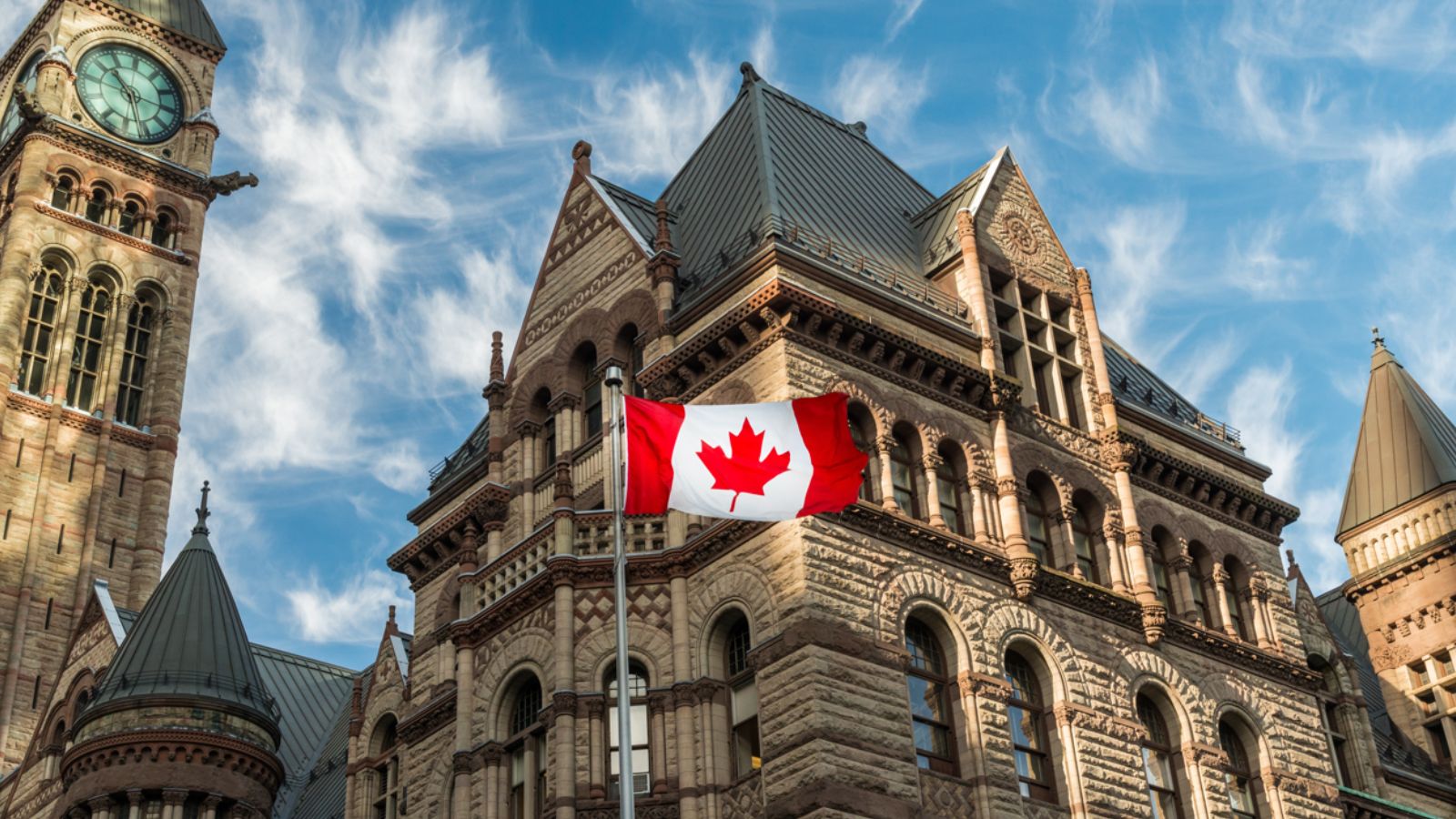Even though Canada and America are neighbors and have similarities, both countries also have their own quirks that make them stand out from each other. Many of these quirks about Canada may baffle some Americans. Here are 20 facts that Americans might find surprising.
Universal Healthcare

Healthcare in Canada is publicly funded, making it far more accessible for citizens than in America. For example, Cheapism writes, “Canada’s universal healthcare system utilizes a taxpayer-funded, Medicare-like model that automatically covers citizens throughout the various provinces.” Canadians are proud of their healthcare, as they feel it enhances freedom.
Linguistic Quirks

Canadians have different pronunciations that make them stand out from Americans. The words “sorry” and “about” sound noticeably different from the American accent. Canadians also like to say “eh” at the end of their sentences, although you’ll find this more in rural areas compared to the larger cities.
Canada’s Size

Canada is the second largest country in the world, with Russia being the first. It spreads across a huge distance, so much so that Newfoundland is closer to London than it is to Vancouver. Even though it’s a huge country, the majority of the population lives close to the U.S. border.
Low Population

Considering its size, one surprising fact is that Canada has a low population. This is supported by Statista, which writes, “In 2021, Canada had a population density of about 4.35 people per square kilometer. The country has one of the lowest population densities in the world, as the total population is very small in relation to the dimensions of the land.”
Measuring Systems

Canada uses a mix of the imperial and metric measuring systems. It uses the metric system for distance and temperature and the imperial system for personal measurements. This reflects a blend of both American and European measurement systems and shows how Canada is linked to both the U.S. and Britain.
Spelling Differences

One thing that can be surprising is that Canada uses British spelling for certain words. For example, the British spelling is used for words such as “favour” and “colour.” Canadians also prefer to use “re” over “er,” which is the case in words like “theatre.” However, in some regions, Canada uses the American way of spelling.
Canadians and Cuba

There is a strong tourist relationship between Canada and Cuba, with over 1 million Canadians visiting Cuba each year. This is the highest number of visitors compared to any other country. Many Canadians even became upset when America and Cuba’s relationship strengthened, as it meant more Americans in Cuba.
The Northern Lights

The Northern Lights are visible across Canada and more so in the northwest regions. It’s the perfect geographical location to see the phenomenon, so much so that it attracts many tourists throughout the year. The Northern Lights are considered a once-in-a-lifetime experience, but Canadians will be lucky enough to experience them more often.
Telephone Invention Claim

Globotreks tells us that even though the telephone was built in the U.S., it was actually invented in Canada and patented by Alexander Graham Bell. The first long-distance call was also made in Canada and took place between Brantford, Ontario, and Paris. It shows just how large a role Canada played in the development of the telephone.
World’s Largest Skating Rink

Rideau Canal in Ottawa becomes a huge ice skating rink in the winter. It spans over 7.8 km and attracts ice skaters from all over the world. You can usually skate on the rink between January and early March, as this is when Canada is at its coldest. The skating rink reflects just how much the country loves its winter sports.
Large Forests

Canada is known for having a larger forest than France, which reveals just how huge it is. Because of its enormous forests, Canada has a significant logging industry that is valued at $12.3 billion. Canada is rich in coniferous species such as pine and spruce.
Highly Educated Population

Canada has the highest number of degree holders in the world. This is largely down to how accessible and affordable its education system is, as it gives anyone who wants to go to university the chance. It reflects the value of education in Canadian society.
Odd Laws and Protections

Sasquatch, also known as Bigfoot, is protected in Canada. It’s a unique and humorous law that reflects the quirky nature of Canada. This law comes from the 1800s, when a man asked to shoot “the wild man of Home Lake,” but it was denied.
Santa Claus’s Canadian Citizenship

Santa Claus is recognized as an official Canadian citizen. When letters are addressed to Santa at the North Pole, they always make their way to Canada. It helps add a whimsical feel to Canada’s identity and will no doubt help to drive tourism around Christmas time.
Reduced Gravity in the Hudson Bay

Thanks to glacial changes, there is a lower amount of gravity in the Hudson Bay. It’s something that’s completely unique in the world and is seen as a geophysical anomaly. This reduction in gravity has attracted lots of scientific interest and curiosity over the years.
Apologetic Culture

The Planet D writes that Canada is known for saying sorry a lot, and if you visit for an extended period of time, chances are you’ll start to always apologize as well. It reflects the polite and considerate nature of Canadians. However, don’t think that if a Canadian apologizes, it always means they’re in the wrong.
The Great Maple Syrup Heist

In 2012, there was a massive theft of maple syrup that occurred in Quebec. As 80% of the world’s maple syrup comes from Canada, the heist took its toll on the industry. It also highlighted just how important maple syrup is to Canada’s economy.
Indigenous Origins of “Canada”

The name “Canada” comes from the Iroquoian word “Kanata,” which means “village” or “settlement.” As people kept visiting the land, it meant the pronunciation of “Kanata” became softer and turned into “Canada.” It was first used in 1791, during the division of Quebec. This shows just how deep-rooted Canada’s Indigenous history is.
Canadian Thanksgiving

Canadian and American Thanksgivings vary. For example, Yeg Thrive writes, “Canadians don’t celebrate Thanksgiving on the same dates as the Americans, as they celebrate it somewhere in the middle of October while the Americans do it in late November.” Canada uses Thanksgiving as a way to symbolize the end of the harvest season and familial gratitude.
Continuous Daylight

The northern regions of Canada experience continuous daylight in the summer, which is similar to Scandinavian countries. It gives Canadians even more time for outdoor activities such as hiking and paddling. This phenomenon really helps to show the natural and unique beauty of Canada.
Read More: 18 Misunderstood Acts The Bible Says Aren’t Actually Sins

People tend to assume that the Bible condemns a wide array of behaviors, but the reality might surprise you. Here, we zoom in on 18 so-called “sins” that may not be as bad as we thought.
18 Misunderstood Acts The Bible Says Aren’t Actually Sins
The Boomers Called It: 19 Stupid Trends That Backfired

Sometimes, we get carried away with trends that we think are cool at the time, only to realize later how utterly ridiculous they were. Join us as we take a cringe-worthy trip down memory lane and explore 19 stupid trends that backfired. Prepare for some facepalms!
The Boomers Called It: 19 Stupid Trends That Backfired
18 Reasons Why No One Is Interested in Working Anymore

The concept of traditional employment has taken a back seat in recent times with changes in economic and social factors, as well as individual preferences. Traditional jobs have also evolved, and many people don’t feel the need to take this route anymore. These are 18 reasons why no one is interested in working anymore.
18 Reasons Why No One Is Interested in Working Anymore
21 Things That Will Be Lost Forever When The Boomer Generation is Gone

Baby boomers grew up in a vastly different culture, so they have what younger generations consider strange habits. An internet survey recently asked, “What will die with boomers?” Here are the top 22 answers.
21 Things That Will Be Lost Forever When The Boomer Generation is Gone
18 Common Phrases That Signals Support for Trump

Understanding the unique language of politics, particularly among Trump supporters, can provide valuable insights into the nation’s current state. Here’s a deeper look into 17 phrases you’ll likely only hear from this demographic.

